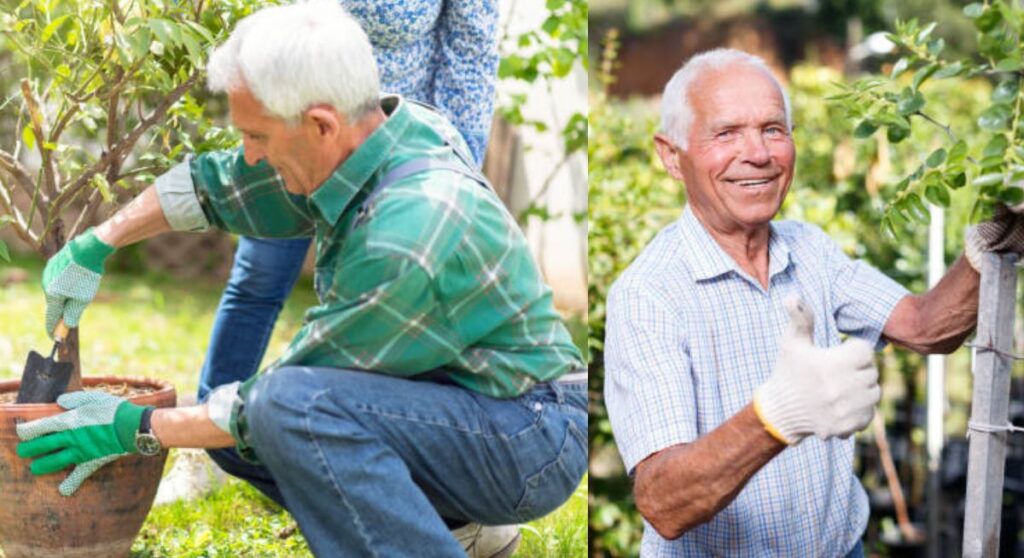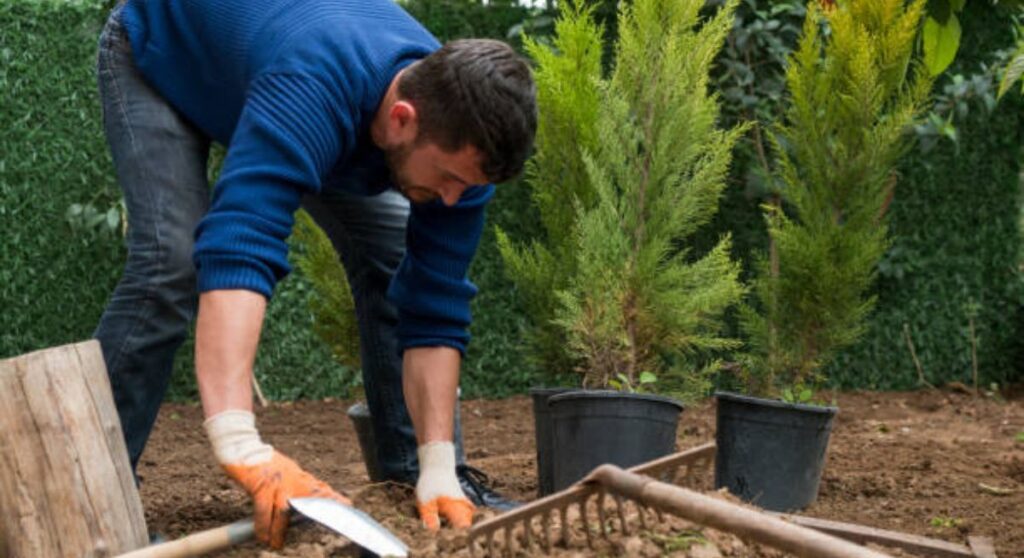Introduction
Cultivating Calm: The Dual Impact of Gardening on Your Mind and Planet

Gardening is not just a leisure activity; it is a therapeutic endeavor that has profound benefits for mental health and environmental sustainability. As more people turn to gardening to reduce stress and improve overall well-being, it is important to acknowledge the positive impact this practice can have on personal mental health and the health of our planet. This article explores how gardening promotes mental wellness and contributes to environmental health, providing valuable insights into why cultivating a garden can be a truly beneficial choice for individuals and the environment alike.
What are the dual impact of gardening for seniors?
The Cognitive Advantages of Gardening for Seniors
Gardening presents numerous cognitive advantages for older adults, contributing to enhanced mental functions and overall health. Participation in gardening activities can positively influence cognitive well-being in several ways:
1. Enhanced Cognitive Abilities
• Memory Improvement: Engaging in gardening encompasses various tasks that can stimulate memory and recall. Organizing a garden layout, remembering care routines for plants, and identifying different species can keep the brain engaged. Research published in the Journal of Gerontology suggests that mentally stimulating activities, such as gardening, can help preserve cognitive function and mitigate the risk of cognitive decline (Valenzuela & Sachdev, 2006).
2. Increased Attention and Concentration
• Heightened Focus: Gardening demands attention to detail and concentration, whether it involves observing plant growth, managing pests, or ensuring soil health. This sustained focus can enhance concentration and cognitive flexibility. A study featured in Horticulture Research indicates that gardening activities can improve cognitive functions such as attention and executive functioning in older adults (Soga et al., 2017).
3. Lowered Risk of Cognitive Decline
• Preventative Benefits: Regular engagement in mentally stimulating activities like gardening may aid in delaying or preventing cognitive decline. A study published in Neurology found that lifelong participation in brain-challenging activities, including gardening, is linked to a reduced risk of developing dementia (Scarmeas et al., 2001).
4. Enhanced Problem-Solving Abilities
• Strategic Reasoning: Gardening necessitates problem-solving skills, such as diagnosing plant ailments, improving soil quality, and adapting to varying weather conditions. These tasks stimulate cognitive processes related to problem-solving and decision-making. The intricate nature of gardening can present beneficial cognitive challenges.
5. Improved Mood and Emotional Health
Psychological Benefits: Gardening has the potential to alleviate stress and enhance mood, which indirectly contributes to overall mental health.
The Environmental Benefits of Gardening
Home gardening offers a wide range of environmental benefits, contributing positively to both 1. Local ecosystems and the larger environment benefit significantly from home gardening. Below is an in-depth examination of several key advantages:

1. Biodiversity Enhancement
• Habitat Creation: Home gardens serve as vital habitats for a variety of species, including essential pollinators such as bees, butterflies, and hummingbirds. By cultivating a diverse array of flowers, shrubs, and trees, gardeners can foster a rich wildlife community.
• Native Plants: Incorporating native plant species into gardens promotes the well-being of local flora and fauna, thereby enhancing regional biodiversity and the overall health of ecosystems.
2. Soil Health Improvement
https://www.urlvotes.com• Organic Matter: The addition of compost and organic materials to garden soil significantly enhances its fertility and structure. This practice not only improves soil health but also mitigates erosion, yielding positive environmental outcomes.
• Reduced Need for Chemical Fertilizers: By naturally enriching the soil, home gardeners can diminish their dependence on synthetic fertilizers, which are often responsible for soil degradation and water pollution.
3. Carbon Footprint Reduction
• Local Food Production: Cultivating one’s own fruits and vegetables minimizes the necessity for transportation, packaging, and refrigeration linked to commercially purchased produce, thereby contributing to a reduction in greenhouse gas emissions.
• Carbon Sequestration: Through the process of photosynthesis, plants absorb carbon dioxide from the atmosphere, aiding in the fight against climate change. Gardens, particularly those featuring trees, play a significant role in carbon sequestration.
4. Water Conservation
• Rainwater Harvesting: Gardeners can utilize rain barrels to collect and repurpose rainwater for irrigation purposes, thereby alleviating pressure on municipal water resources.
• Efficient Water Use: Employing water-conserving methods such as drip irrigation or mulching effectively preserves water and minimizes runoff, which can contribute to soil erosion and pollution of waterways.
5. Local ecosystems and the larger environment benefit significantly from home gardening. Below is an in-depth examination of several key advantages:
1. Biodiversity Enhancement
• Habitat Creation: Home gardens serve as vital habitats for a variety of species, including essential pollinators such as bees, butterflies, and hummingbirds. By cultivating a diverse array of flowers, shrubs, and trees, gardeners can foster a rich wildlife community.
• Native Plants: Incorporating native plant species into gardens promotes the well-being of local flora and fauna, thereby enhancing regional biodiversity and the overall health of ecosystems.
2. Soil Health Improvement
• Organic Matter: The addition of compost and organic materials to garden soil significantly enhances its fertility and structure. This practice not only improves soil health but also mitigates erosion, yielding positive environmental outcomes.
• Reduced Need for Chemical Fertilizers: By naturally enriching the soil, home gardeners can diminish their dependence on synthetic fertilizers, which are often responsible for soil degradation and water pollution.
6. Carbon Footprint Reduction
• Local Food Production: Cultivating one’s own fruits and vegetables minimizes the necessity for transportation, packaging, and refrigeration linked to commercially purchased produce, thereby contributing to a reduction in greenhouse gas emissions.
• Carbon Sequestration: Through the process of photosynthesis, plants absorb carbon dioxide from the atmosphere, aiding in the fight against climate change. Gardens, particularly those featuring trees, play a significant role in carbon sequestration.
7. Water Conservation
• Rainwater Harvesting: Gardeners can utilize rain barrels to collect and repurpose rainwater for irrigation purposes, thereby alleviating pressure on municipal water resources.
• Efficient Water Use: Employing water-conserving methods such as drip irrigation or mulching effectively preserves water and minimizes runoff, which can contribute to soil erosion and pollution of waterways.
What are the best plants for mental health benefits?
Some plants are celebrated for their potential benefits to mental well-being, providing soothing effects, enhancing mood, and fostering a tranquil atmosphere. Here’s a selection of some of the top plants for mental health, along with their unique advantages:

1. Lavender (Lavandula angustifolia)
• Benefits: Lavender is famous for its calming and stress-relieving qualities. Its fragrance can help alleviate anxiety and enhance sleep quality. A study featured in The Journal of Alternative and Complementary Medicine indicates that lavender aromatherapy can significantly lower anxiety levels (Koulivand et al., 2013).
• Care Tips: Lavender thrives in well-drained soil and enjoys plenty of sunlight, making it suitable for both indoor pots and outdoor gardens.
2. Aloe Vera (Aloe barbadensis miller)
• Benefits: Aloe Vera is not only valued for its soothing gel but also for its air-purifying abilities. Cleaner air can promote better sleep and lessen stress. Having Aloe Vera in your home can contribute to a more pleasant and calming environment.
• Care Tips: Aloe Vera flourishes in bright, indirect light and requires minimal watering.
3. Snake Plant (Sansevieria trifasciata)
• Benefits: The Snake Plant is recognized for its air-purifying capabilities, which can improve overall air quality and create a more peaceful living space. It’s also very easy to care for, making it an excellent option for those with busy lifestyles.
• Care Tips: It can thrive in low light and needs infrequent watering, making it ideal for indoor settings.
4. Peace Lily (Spathiphyllum spp.)
• Benefits: Peace Lilies are known for their ability to cleanse indoor air and eliminate toxins. Their soothing appearance and lush foliage can help create a calming environment. Additionally, Peace Lilies enhance indoor humidity, which can benefit respiratory health.
• Care Tips: Peace Lilies prefer low to medium light and require regular watering to keep the soil moist.
5. Spider Plant (Chlorophytum comosum)
• Benefits: Spider Plants are fantastic air purifiers and are known to reduce indoor pollutants.
Conclusion
Gardening is an enriching activity that benefits both your mental health and the environment. It helps alleviate stress, boosts your mood, and enhances cognitive abilities, making a positive impact on your overall well-being. At the same time, gardening encourages biodiversity, enhances soil quality, and lowers your carbon footprint, which is great for our planet. As you tend to your garden, you’re not just nurturing plants; you’re also creating a healthier future for yourself and generations to come.
References
- Brady, N. C., & Weil, R. R. (2016). The Nature and Properties of Soils. Pearson Education.
- Hicks, D., et al. (2016). “Gardens as refuges for biodiversity.” Journal of Applied Ecology, 53(2), 239-248.
- Soga, M., et al. (2017). “Gardening as a mental health intervention: A review.” Horticulture Research, 4, 17020.
- Van den Berg, A. E., et al. (2015). “Green space as a buffer between stressful life events and mental distress.” Journal of Public Health, 37(2), 356-362.
- Wang, H. X., et al. (2014). “The effects of gardening on cognitive function and quality of life in older adults.” Psychiatry Research, 219(3), 357-362.
- Weber, C. L., & Matthews, H. S. (2008). “Food miles and the relative climate impacts of food choices in the United States.” Environmental Science & Technology, 42(10), 3508-3513.

